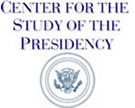His silence left Haitians and the rest of the world to wonder what Mr. Duvalier was really up to.
Neither France, which had granted Mr. Duvalier asylum, nor the United States, Haiti’s largest benefactor, said they had anything to do with his return. In fact, both governments said they had been unaware that Mr. Duvalier had left Paris until his flight was close to landing in Port-au-Prince.
The Haitian government — in disarray since the earthquake — seemed to respond in fits and starts, initially dismissing Mr. Duvalier’s arrival as well within his rights as a Haitian citizen, and later suggesting that the Justice Ministry had begun an investigation into his return.
Angry reactions poured in from around the world, with human rights groups demanding that the Haitian government charge Mr. Duvalier with crimes against humanity — including the kidnapping, torture and murder of thousands of his opponents — and with stealing hundreds of millions of dollars from the nation, the poorest in the hemisphere.
“Duvalier’s return to Haiti should be for one purpose only: to face justice,” José Miguel Vivanco, director of Human Rights Watch’s Americas division, said in a statement.
On the streets here, however, there were signs that Mr. Duvalier’s arrival had started a new cycle of the polarization that has crippled this country for decades. Some decried Mr. Duvalier as a vestige of one of the darkest chapters in the country’s history, while others waxed nostalgic about him as the only hope for change in Haiti.
In an interview with The Associated Press, Bobby Duval, a former soccer star, said he had been starved and tortured for 17 months while being held without charges under Mr. Duvalier’s government.
Calling Mr. Duvalier a “murderous thief,” Mr. Duval said, “A country that has no memory will repeat its same mistakes.”
But there were different opinions in some of the tent camps that have become home to one million people displaced by the earthquake, where many have become so desperate that they are willing to pin their hopes on just about anyone.
“Haiti has never had the perfect leader,” said Bernadette Brudet. “Many of them were corrupt. Many of them have blood on their hands. But with Duvalier, we were safe, and our stomachs were full.”
History records things a bit differently. The country to which Mr. Duvalier returned on Sunday seems woefully similar to the one he fled in 1986 — a place plagued by violent crime and corrupt politicians, where people live in crushing poverty and die from preventable diseases.
Mr. Duvalier ruled Haiti beginning in 1971, when he was just 19, following the death of his father, François Duvalier, known as Papa Doc. In all, the Duvalier dynasty lasted about three decades and was marked by the family’s brutal repression of its opponents, with the help of a special police unit called the Tontons Macoute.
Following the younger Mr. Duvalier’s ouster, the country turned on his security forces, slaughtering them by the dozens and even desecrating François Duvalier’s mausoleum.
The devastating earthquake on Jan. 12, 2010, stretched this nation to its limits once again, making Mr. Duvalier’s stunning return a potential breaking point.
So far, however, people in Port-au-Prince have remained calm. After landing in the capital on Sunday, Mr. Duvalier was treated by some like a visiting dignitary, according to the Web site of the Haitian newspaper Le Nouvelliste.
“I came to put myself at the service of my country,” he was quoted as saying as he left the plane.
Crowds lined his route from the airport and, referring to the nation’s dismal conditions, chanted, “If Jean-Claude had been here, we would never be like this,” the newspaper reported.
Mr. Duvalier and his companion, Véronique Roy, were driven to the Karibe Hotel in a four-wheel-drive vehicle that was escorted by members of the Haitian national police and followed by a “procession,” the newspaper said.
Reporters camped outside the Karibe all day on Monday, while a steady stream of friends and relatives dropped in to visit.
A Duvalier aide, Henry Robert Sterlin, said he did not know how long Mr. Duvalier planned to stay in Haiti, or if he planned to meet with Haiti’s president, René Préval. A friend of the former dictator, who would speak only on condition of anonymity because he was not an official representative, said that Mr. Duvalier would stay for three or four days, but that he would like eventually to resettle in Haiti.
Desir Gérard, an elderly cousin, who was one of the visitors at the hotel, told reporters that Mr. Duvalier “is happy to be here,” adding, “He was homesick.”






